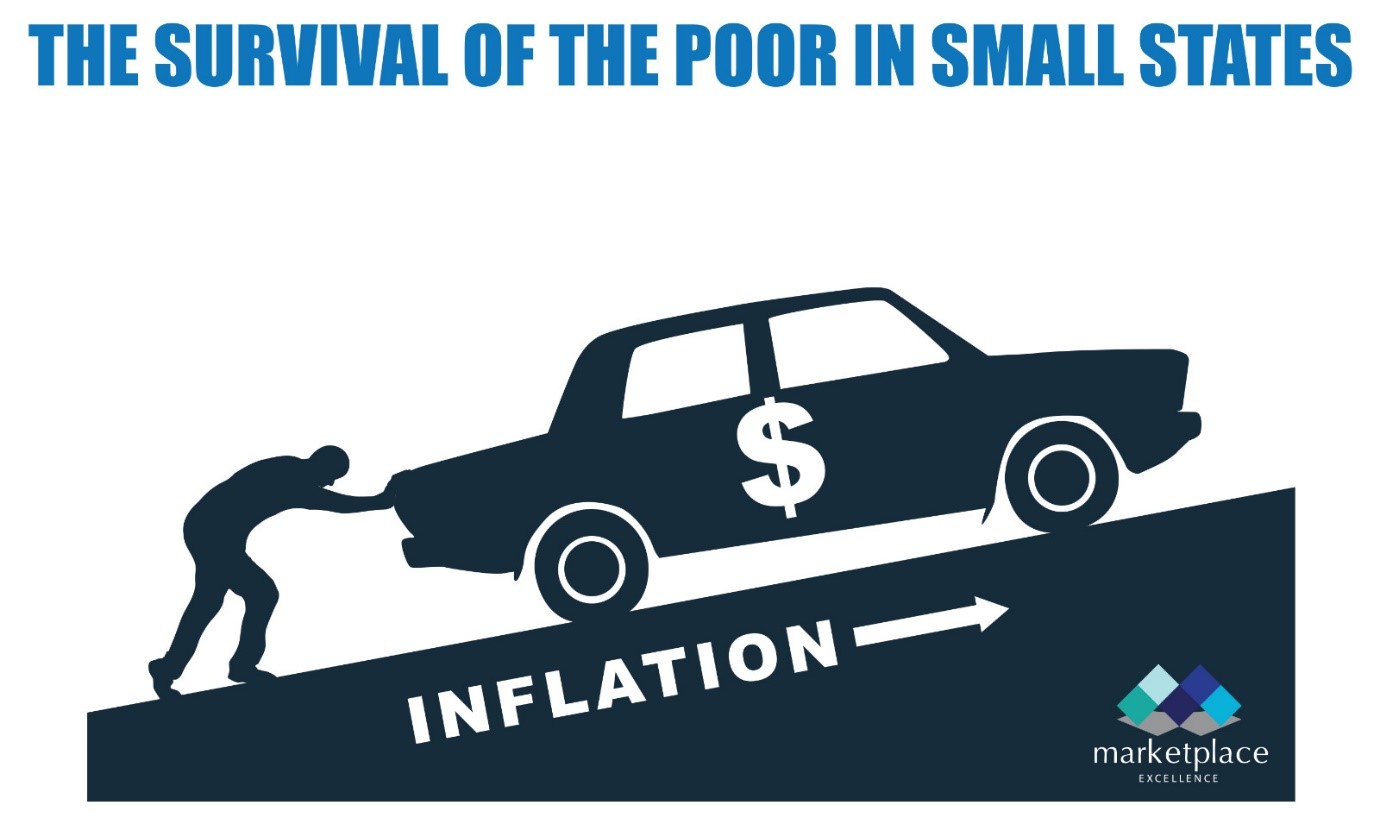“Blessed are you who are poor, for yours is the kingdom of God. Blessed are you who hunger now, for you will be satisfied. Blessed are you who weep, for you will laugh.”- Luke 6:20-21
Small island developing states (SIDS) face persistent inflationary pressures, and for low-income households, the cost of survival grows more challenging by the day. For many, every trip to the supermarket or gas station brings renewed anxiety.
Policymakers often respond with short-term fixes, such as subsidies, minimum wage adjustments, or targeted social welfare. While helpful, these fixes are insufficient to drive the systemic changes required for economic dignity. Bold, integrated strategies, with enterprise development as a critical solution, are needed for the survival of the poor in these environments.
Minimum wage policies have their place. They represent a basic commitment to social justice, protecting vulnerable workers from exploitation. Yet, in today’s inflationary cycles, wage floors often fail to keep pace with soaring prices, and their effect is less impactful. To address poverty effectively, we need frameworks that not only protect individuals from hardship but also empower them to move from mere survival to prosperity.
In my work across the Caribbean, I have consistently advocated for dynamic enterprise development as a sustainable approach to poverty alleviation. This approach involves more than creative equity funding. It includes training, life coaching alongside business mentoring (shepherding), access to technology, market facilitation, and an enabling business environment. Small and micro enterprises must not be viewed as marginal but as engines of inclusive economic growth.
Consider a single mother with exceptional baking skills, a young man gifted in digital media, or a retiree skilled in farming. Each holds the potential to transform into a “DNA of an elephant” entrepreneur with the proper support structures in place. In a small state, these entrepreneurs create sustainable livelihoods for themselves; they stimulate local supply chains, circulate money within communities, and reduce dependence on imports.
Governments must, therefore, recognize enterprise development as a strategic imperative, not an optional economic “add-on.” This means reducing bureaucratic hurdles, making revolving microfinance equity funds accessible, and nurturing entrepreneurship from early education stages. Forward-thinking policies can support innovation, promote cooperative business models, and establish incubation hubs in rural and underserved communities.
The private sector partners and NGOs also have significant roles to play in this ecosystem. Appropriately and timely blended finance, social impact investments, and public-private partnerships can expand opportunities for the poor. Digital platforms, in particular, offer cost-effective ways to provide training, expand market access, and deliver critical support services. Successful models should be replicated across political jurisdictions to avoid redundant efforts.
Inflation will remain a feature of our economic landscape for the foreseeable future. However, the burden of inflation should not fall most heavily on those least equipped to influence its effects. Our policy responses must be holistic, future-facing, and focused on empowering individuals to own their economic destinies.
The survival of the poor in a small state inflationary environment is not simply a matter of compassion. It is a question of sound economic strategy and long-term social stability. Let us move beyond minimum measures and design systems that truly maximize the full potential of every citizen.

(Dr. Basil Springer GCM is a corporate governance adviser. His email address is basilgf@marketplaceexcellence.com. His columns may be found at https://www.nothingbeatsbusiness.com.)
